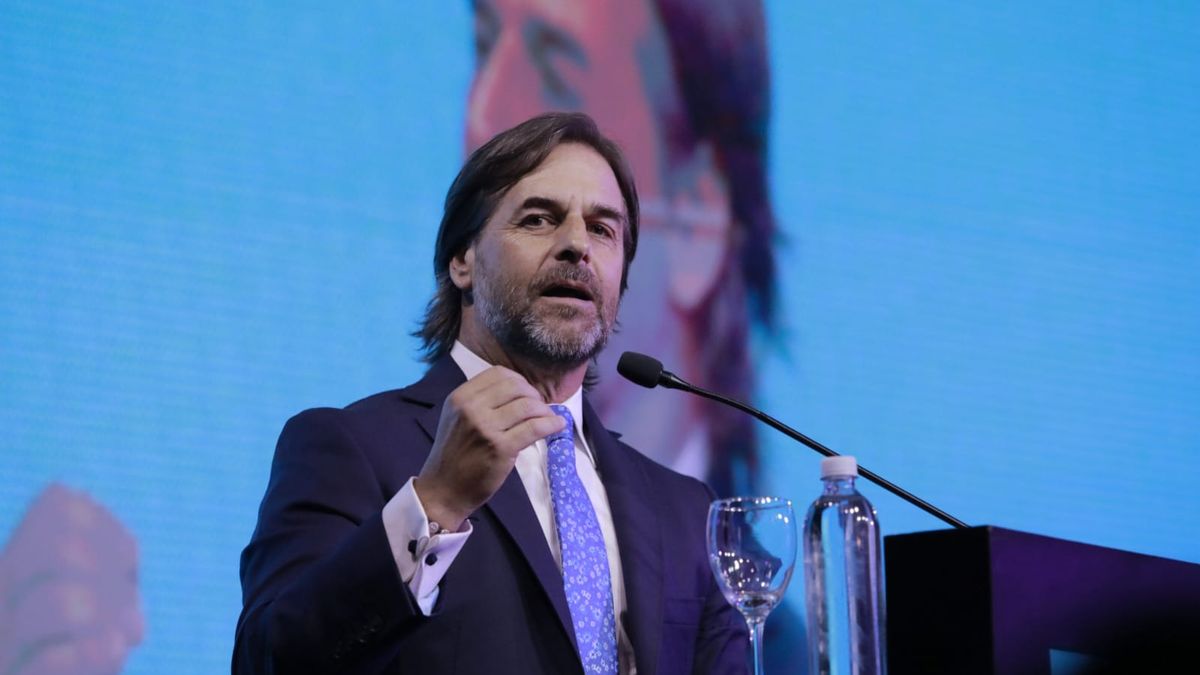The president’s speech Luis Lacalle Pou at dinner Freedom Foundation, in Buenos Aires, was far from going unnoticed. Although he addressed the issue of freedom and claimed it as a basic principle of his political actions, his approach contrasted directly with what in Argentina is being heard from the president’s mouth Javier Milei. Lacalle Pou emphasized the need for a strong State, with a political system with independent powers and firm political parties, which provide stability. “That is what politics is based on. Uruguay”, he remarked.
Beyond the visions, the philosophical differences within the liberalism They are not – not even close – at the center of the relationship between Argentina and Uruguay. “The key thing is what the President said at the beginning – commented a Uruguayan businessman linked to logistics, who was at the dinner in Buenos Aires -: the significant political change that came with the new Argentine government, in particular by enabling the deepening of the access channel to Port of Montevideo. This generated a notable improvement for Uruguayan port logistics, and we owe it to Milei and Foreign Minister Mondino,” he remarked. Precisely, the Uruguayan president was accompanied by his personal secretary, Nicolas Martinezand by the chancellor Omar Paganini, who shared a table next to his counterpart from Argentina.
What is different is the tone, and that was highlighted by Argentine businessmen to the Uruguayan delegation. “One can agree almost 100% with what Milei says… the problem is how he says it,” commented an Argentine businessman close to the ‘red circle’, in the ear of Uruguayans. “In that sense, there is a big difference with Uruguay; You do not have permanent outbursts and you handle yourself with civility”.
Without boasting, another Uruguayan businessman who participated in the dinner shared the point. “We are in different worlds: Argentina is in a tremendous crisis, looking to get out… notice that Milei was… An hour talking about inflation! We already know the negative of living with inflation. Today we are on another level, although we should not rest on our laurels.”
At the time Lacalle Pou spoke, Javier Milei was not present. But at the end of his presentation, the Argentine president had a brief dialogue with his Uruguayan counterpart, who took the opportunity to reiterate the invitation to visit Uruguay.
After dessert and when they were leaving, an economist who goes back and forth between the two shores slipped: “what caught my attention was Milei’s mention of the deflation…Could it be that you expect a fall in the CPI?” A colleague responded: “with the recession that there is, cannot be ruled out.”
Creditors
The bankruptcy to which the real estate developer applied Raft generated concern in the environment of the “Real Estate”, There are those who see a problem beyond the specific case. “The real estate investment It is being enormous and it cannot be ruled out that it is exceeding the demand itself. It’s like the game of chair – exemplified a financier linked to the sector -: while the music continues, everyone dances… but when someone is left without a place. He added that a good part of the investment has come from Argentina. “Now with Milei, the opportunities to place capital have been renewed in Buenos Aires and that can generate a change in the investment trend towards Uruguay. “In Argentina everything is much riskier… but now you place in pesos and the return in dollars is enormous,” he emphasized.
The Balsa contest is voluntary and involves approximately US$65 million in liabilities. We will have to see the financial mismatch to be faced and if a solution is achieved. “The idea of the contest is that: put all the cards on the table and agree on a way out… the issue is to see if that is possible,” described an accountant linked to these processes.
Transport
The company Copsa He is in trouble again and owes part of his March salaries. But the government suspects something more than an exclusively financial problem. “The problems have been going on for a long time and solutions were being analyzed… but they generated this problem, oh coincidence, just a few months before the elections“said a government official. “It would seem that they want to pressure us from the political side, generating a conflict with the workers and harming users, but we are not going to give in: the problem belongs to the company,” he added.
The company points out that they compete at a disadvantage with other companies that obtain cross subsidies. “We are in the suburban transportation…but competing with firms that have subsidies for urban transportation is not fair.” From the ruling party they respond (again) that this has been known for a long time. “Why does the problem arise now? “It’s pretty obvious they’re pushing at a politically sensitive time.” Copsa offered to pay what it owed to the workers and a solution is on the way.
Europe
The European leader arrived directly from the airport to golf Clubwhere the European Business Meeting. Rupert Schlegelmilch He is the EU’s chief negotiator in the hackneyed trade agreement with the Mercosur, which has generated many more frustrations than progress. The diplomat came to convey to the Uruguayans that they should not give up and make the final effort to sign. “One tends to think that it is more of the same,” said a skeptical Creole businessman linked to an important European company. “But hope is the last thing you lose…”. Schlegelmich recognized that the key point is environmental. “The problem is that there the one who defines is Brazil: Europeans question – for me a little unfairly – about various environmental problems and Brazil has to move to agree; We look at it from the outside, they recognize us, they flatter us… but we still don’t open markets,” he added.
In reality, the government is not only concerned about the lack of progress but also about possible setbacks. Starting next year, the EU will require that exports to that destination have a certificate proving that the products do not arrive from deforested areas. “One may think that it is more of a problem for Brazil than for Uruguay, but we are all in the same market…” said an agribusiness businessman who was attending the Meeting. “In addition, in Uruguay There are those who want the management and control of the affairs of the native forest to pass from MGAP to the Ministry of Environmentwhich could entail risks… in Environment there is a permanent aversion to productive issues, despite the fact that we are a country of purely sustainable production,” he noted.
Source: Ambito




